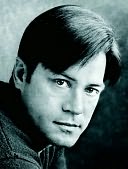- Shopping Bag ( 0 items )
From Barnes & Noble
Barnes & Noble Discover Great New WritersIn a place that inspired Scott Fitzgerald's Great Gatsby, young J. R. Moehringer lives with his single mother and mercurial grandfather in a cramped home with a rather-too-colorful cast of strident aunts, down-on-their-luck uncles, and their various offspring. It is 1970s Manhasset, Long Island, and J.R. is lonely and adrift.
Desperate to escape, J.R.'s mother takes him on long drives, where his dreams are fueled by the sight of the deep, plush lawns and dazzling, gated mansions that served as Fitzgerald's East Egg. But it is J.R.'s introduction to the local pub and its vibrant constellation of characters that would have the greatest effect on him. A panoply of discordant human notes, by turns raucous, witty, vulgar, and wise, these men -- who never quite grew up themselves -- became, for the forlorn young J.R., a veritable symphony of human succor and safety. As J.R. becomes a man, however, he realizes that the bar doesn't grant wishes as much as fill needs in a place where accepting the inevitability of failure is a defense against future disappointment.
A keenly heartfelt memoir by a writer who has been deemed "the best memoirist of his kind since Mary Karr," The Tender Bar is filled with insight into the most fundamental human longings. Before J.R. can grasp such insight though, he is forced to face the truth -- about others and, most important, about himself. (Holiday 2005 Selection)





Overview
The New York Times bestseller and one of the 100 Most Notable Books of 2005. In the tradition of This Boy's Life and The Liar's Club, a raucous, poignant, luminously written memoir about a boy striving to become a man, and his romance with a bar.
J.R. Moehringer grew up captivated by a voice. It was the voice of his father, a New York City disc jockey who vanished before J.R. spoke his first word. Sitting on the stoop, pressing an ear to the radio, J.R. would strain to hear in ...